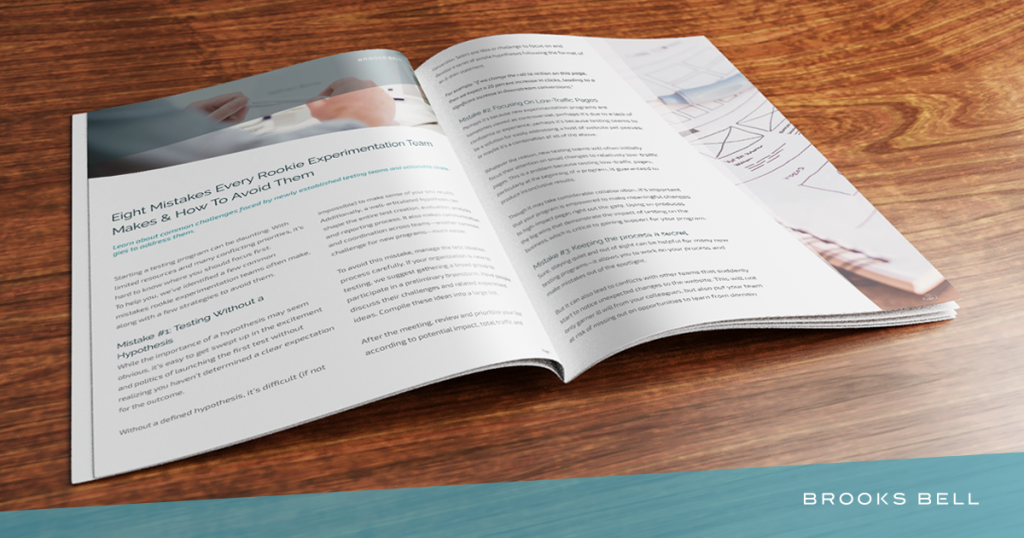
If testing were easy, everyone would do it. But that’s simply not the case.
Rather, experimentation requires extensive learning, hard work, lots of experience and a unique set of skills to consistently produce results that have a meaningful impact on a business.
At Brooks Bell, we’ve spent the last fifteen years helping global brands build and scale their experimentation programs. Drawing on that experience, we’ve identified eight common mistakes that rookie experimentation teams often make in the first few months of testing. We’ve also detailed useful and actionable strategies to help you navigate these challenges as you work to establish your optimization program.
Mistake #1: Testing Without a Hypothesis
While the importance of a hypothesis may seem obvious, it’s easy to get swept up in the excitement and politics of launching the first test without realizing you haven’t determined a clear expectation for the outcome.
Without a defined hypothesis, it’s difficult (if not impossible) to make sense of your test results. Additionally, a well-articulated hypothesis can shape the entire test creation, evaluation, analysis and reporting process. It also makes communication and coordination across teams—another common challenge for new programs—much easier.
Learn strategies to avoid this misstep, along with seven other common rookie mistakes for newly established experimentation teams. Get the white paper.










